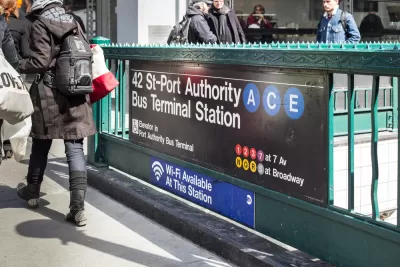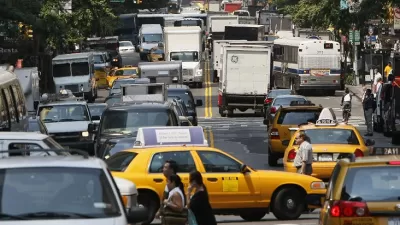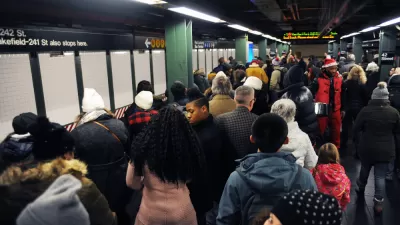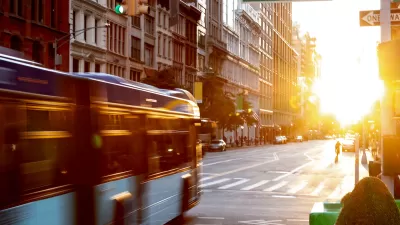The New York City MTA has changed the story, twice, about its plans for little used WiFi service on the city buses.

"The MTA spelled out plans in its latest budget to eliminate lightly used Wi-Fi service on thousands of buses — then backtracked after THE CITY inquired about the proposed cut," reports Jose Martinez.
The agency then announced it was still preparing to cut back WiFi service on buses, "noting it had overestimated how much riders would use Wi-Fi on buses," according to Martinez. A few days later, however, the agency said it wasn't cutting the service at all.
There is evidence that WiFi isn't used very much, probably because so many riders have cellular service. "In January — when more than 40 million people rode buses — there were 630,000 log-ons to bus Wi-Fi, according to an MTA statement given to THE CITY in March," reports Martinez.
Governor Andrew Cuomo announced WiFi service on MTA buses with much fanfare in 2016, but the additional amenity hasn't been enough to prevent ridership from declining on the city's buses.
FULL STORY: MTA SENDS SCRAMBLED SIGNALS ON LITTLE-USED $2.5M BUS WI-FI

Study: Maui’s Plan to Convert Vacation Rentals to Long-Term Housing Could Cause Nearly $1 Billion Economic Loss
The plan would reduce visitor accommodation by 25,% resulting in 1,900 jobs lost.

Alabama: Trump Terminates Settlements for Black Communities Harmed By Raw Sewage
Trump deemed the landmark civil rights agreement “illegal DEI and environmental justice policy.”

North Texas Transit Leaders Tout Benefits of TOD for Growing Region
At a summit focused on transit-oriented development, policymakers discussed how North Texas’ expanded light rail system can serve as a tool for economic growth.

Paris Bike Boom Leads to Steep Drop in Air Pollution
The French city’s air quality has improved dramatically in the past 20 years, coinciding with a growth in cycling.

Why Housing Costs More to Build in California Than in Texas
Hard costs like labor and materials combined with ‘soft’ costs such as permitting make building in the San Francisco Bay Area almost three times as costly as in Texas cities.

San Diego County Sees a Rise in Urban Coyotes
San Diego County experiences a rise in urban coyotes, as sightings become prevalent throughout its urban neighbourhoods and surrounding areas.
Urban Design for Planners 1: Software Tools
This six-course series explores essential urban design concepts using open source software and equips planners with the tools they need to participate fully in the urban design process.
Planning for Universal Design
Learn the tools for implementing Universal Design in planning regulations.
Smith Gee Studio
Alamo Area Metropolitan Planning Organization
City of Santa Clarita
Institute for Housing and Urban Development Studies (IHS)
City of Grandview
Harvard GSD Executive Education
Toledo-Lucas County Plan Commissions
Salt Lake City
NYU Wagner Graduate School of Public Service





























